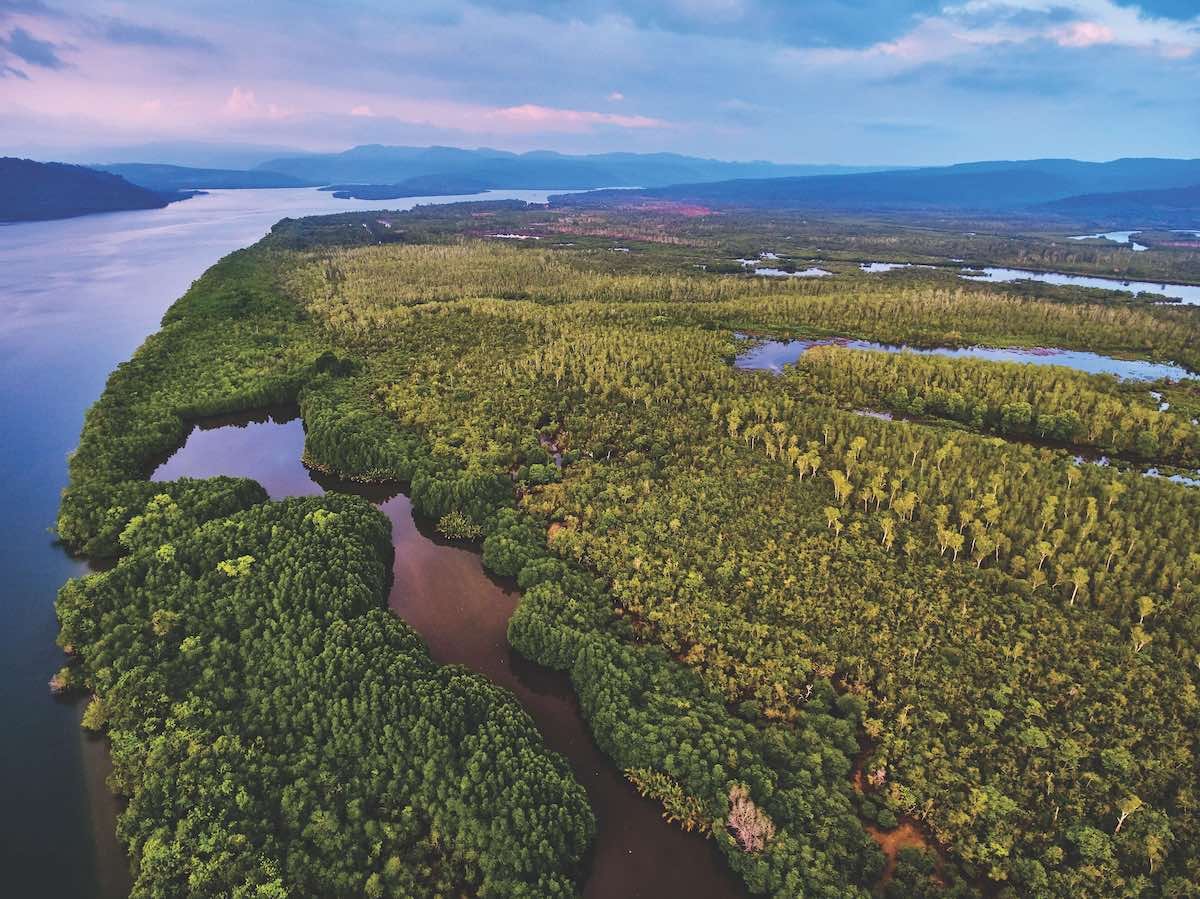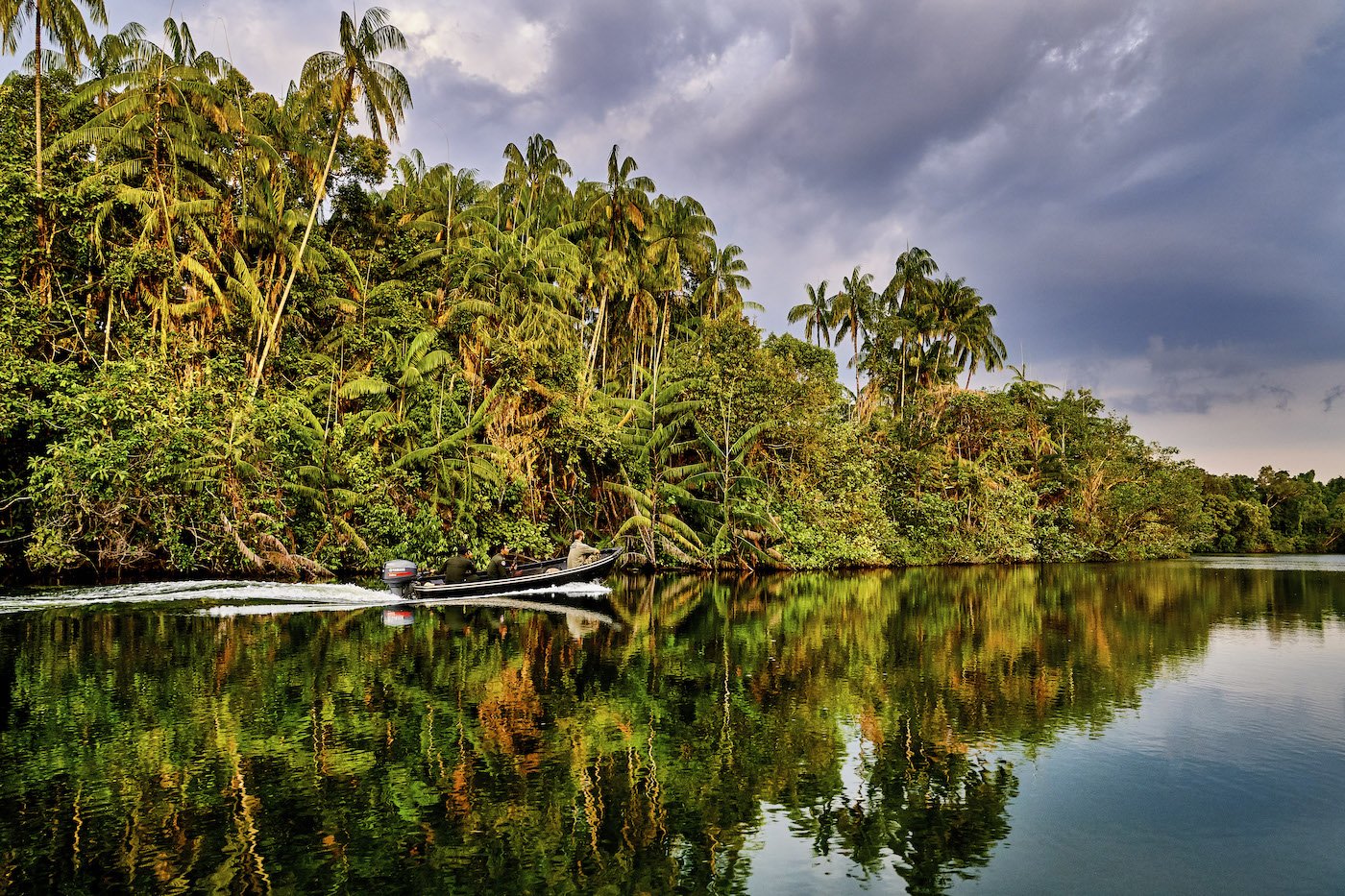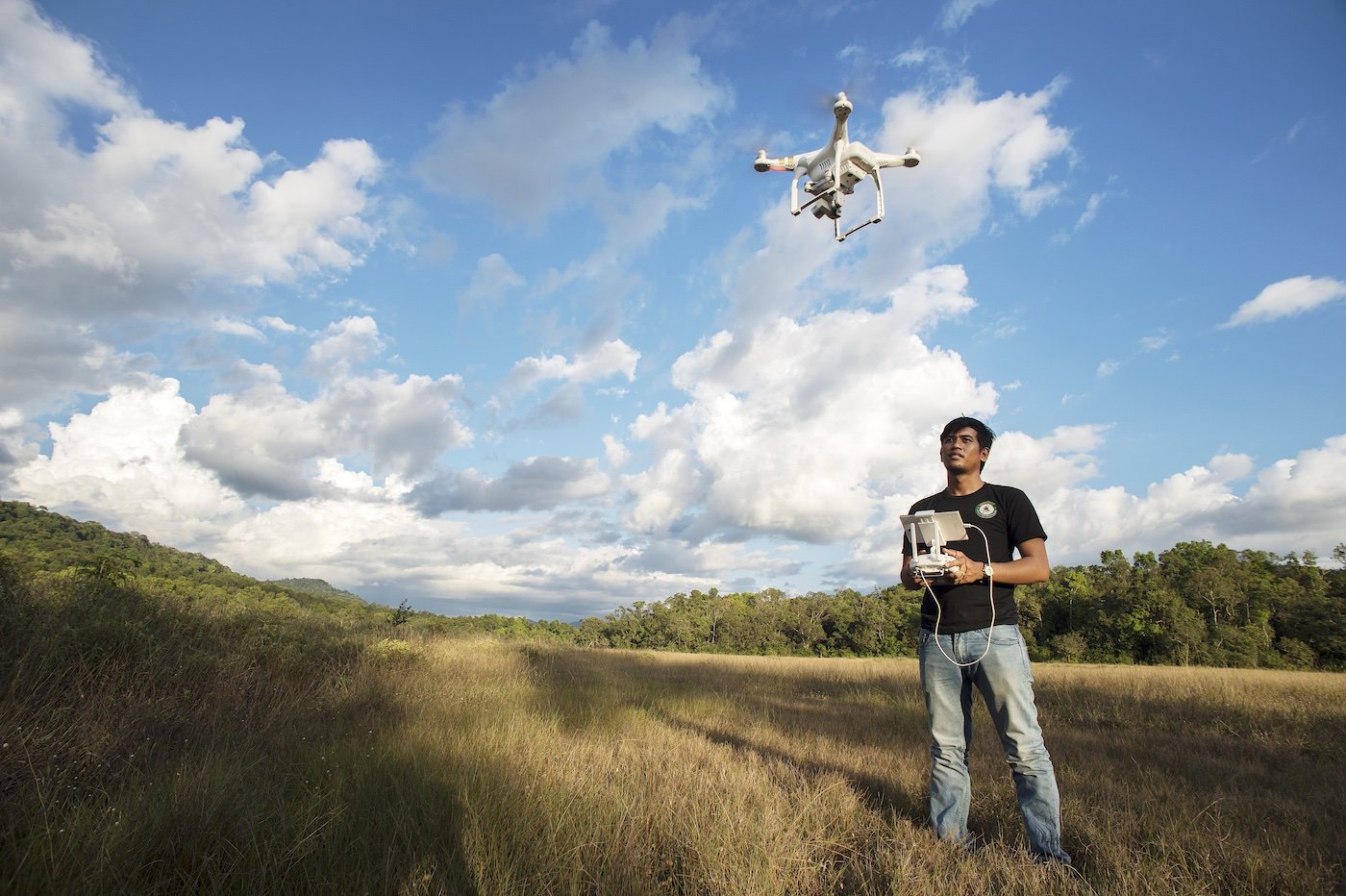Central Cardamom Mountains National Park 2022 Progress Report
Introduction
Central Cardamom Mountains National Park (CCMNP) consists of over 400,000 hectares of dense monsoon forest, melaleuca wetlands, mangroves, and a vast network of estuaries and rivers that course across the mountain slopes and into the Gulf of Thailand. Rivers in the CCMNP provide drinking water for more than 30,000 people and support rice and fish production in the lowland agricultural plains, ensuring food security for many of Cambodia’s poorest people.
The Cardamom rainforest has the greatest watershed value of any forest in Cambodia, with a staggering rainfall of 3,500-4,500mm per year due to its dense evergreen forest cover and its position along the Gulf. Protecting this continuous forest canopy and the flow of water from the forest to the coast is a conservation priority for Cambodia.
Despite its protected status, illegal land clearing and wildlife poaching continue to threaten this park. Cambodia faces some of the highest deforestation rates of any country in the world: over 15% of its forest has been cleared over the past 10 years.
Thousands of wildlife snares, which conservationists call “walls of death” for their ability to create fatal barriers to wildlife, are confiscated every year in the Cardamom region. In the depths of the unexplored forest, such activities are difficult to stop without daily aerial and satellite monitoring. Further, because of its highly desirable real estate location, industrial and community-level land grabbing and wildlife poaching continue to threaten Cardamom’s biodiversity on a daily basis.
To protect this park, Global Conservation, Conservation International (CI), and the Ministry of Environment are deploying new technologies, including command and control, cellular trailcams, aerial surveillance and targeted ranger patrols for increasing the effectiveness of forest and wildlife protection. Wildlife Alliance builds rangers’ professional capacity and provides full support for their livelihoods. This enables them to focus completely on their duties and creates a culture of zero tolerance for corruption.
Global Park Defense provides critical technology and training for rangers. Effective and well-managed patrolling is vital to stop commercial poaching, often involving deadly snares laid on the forest floor to catch wild animals on their way to drink in the rivers. Effective enforcement also deters illegal logging operations and forest clearing for agriculture and other land uses. It's absolutely critical that surveillance, patrolling and law enforcement are conducted on a daily basis.
Summary of Progress
With support from Global Conservation and others, Conservation International continued to provide support for protected area management and law enforcement in the Central Cardamom Mountains National Park (CCMNP) and the Biodiversity Conservation Corridor. With the Ministry of Environment (MoE) and Provincial Departments of Environment (PDoE) as the main implementing partners, CI continued to support eight MoE officers and twelve PDoE officers, as well as to provide technical support, oversight and funds for supplies and salary supplements for 42 rangers to patrol CCMNP from six ranger stations.
During this reporting period CI also continued progress in preparing the necessary documents for establishment of the REDD+ project in the CCMNP.
2022 Key Activities and Outcomes
Patrol Activities
42 rangers (one female ranger) from 6 stations conducted patrols covering a total of 24,422 km (6,271 km by car, 2,202 km by foot, 434 km by boat, and 15,515 km by motorbike).
Each station achieved more than 100% of the patrol plan and overall target activities. This includes 747 patrols, 1,012 days, and 265 nights. Deforestation hotspots have been checked and processed and the legal documents sent to PDoEs and provincial courts.
2 offenders were arrested for land clearance, 18 people were educated due to entering the PA without permission, and 3 people were fined due to illegal logging transportation.
49 cases of illegal logging were encountered, totaling 32 m3 of timber (14.95 m3 of 15 cases were collected and confiscated to store at ranger stations, and 17.50 m3 from 34 cases were left and destroyed at scenes as it was impossible to transport).
103 locations of illegal land encroachment were identified totaling 1,267.13 ha being cleared.
50 total cases of illegal land clearing and 2 cases of illegal timber logging were sent to court.
1 elongated tortoise (Indotestudo elongata) was released and 5 kg of wild pig (Sus scrofa) was destroyed.
33 illegal camps were destroyed (1 illegal settlement, 13 illegal huts, 10 illegal logging camps, and 9 illegal poaching camps).
66 chainsaws and 1 small sawmill were collected, confiscated, and destroyed.
21 illegal vehicles were confiscated (1 excavator, 2 trucks, 1 vehicle, and 17 motorbikes).
106 land clearance prohibition signs were posted between the boundary of farmland and forest.
68 species of wildlife were directly observed during patrols.
690 traps and snares were collected and destroyed, including 7 bird nets, 7 civet traps, 288 nylon snares, 27 small bow snares, 351 small wire snares, and 10 wire snares (motorbike brake cable).
7 illegal hunting tools were confiscated including 4 air guns and 3 home-made guns.
8 sets of illegal fishing gears were collected and destroyed.
Sustainable Livelihood Development
Community consultations for project FPIC and REDD+ planning and implementation
In 2022 CI conducted 56 village consultations with 2103 villagers (1008 female) across 24 villages which are set in four communes within Pursat and Kampong Speu provinces. The consultations sought to inform the communities of the Central Cardamom REDD+ Project and to gain Free Prior and Informed Consent from the communities to initiate project implementation. Consent was gained from all 24 villages.
Socio-economic livelihoods assessments
In 2022 CI conducted village level sketch mapping with 24 villages through workshops with 299 community members (96 female). The sketch mapping process gathered relevant village information and mapped community land use and resources. The sketch mapping was used an engagement tool for new communities where CI has not been present and will later be utilized to inform the village-level development initiatives.
Value chain and field assessments
A value chain scoping assessment was conducted to identify opportunities and constraints to improve the incomes of small-scale farmers in the project area. Four potential products, including Banana, Cardamom, Orange, and Rice were selected for conducting further value chain analysis. 97participants (41 female) joined the interviews and focus group discussion in 9 villages in Kampong Speu, Koh Kong and Pursat province.
Implementation of sustainable livelihoods
CI continues to support a butterfly farm enterprise in Tatei Leu community. In this reporting period, CI worked with Banteay Srey Butterfly Center to provide a technical training to the Spean Kdar Butterfly Enterprise, focusing on butterfly production and enterprise operations. The enterprise continues to produce and release butterflies, while keeping a strong relationship with BBC with a vision to sell to them once international flights carrying live animals start again.
Additional targeted livelihoods interventions will be informed by the results from the value chain and agricultural assessments. The assessments will identify products and systems which are both economically and environmentally suitable to focus on, for example Cardamom production, processing and sale within an agroforestry system for communities within a Community Protected Area, or chicken production for landless households who are high risk profiles for illegal forest activities.
Conservation Technology Training
Train PDoE management team and rangers in SMART
CI conducted a trainer of trainer (TOT) training to 33 MoE and PDoE managers and rangers from seven provinces. The training aimed to strengthen the capacity of these focal people in using and training others on the use of SMART law enforcement activities.
CI provided training to 24 Officers and Rangers from Koh Kong, Kampong Speu and Pursat, aimed at strengthening their capacity to observe and record patrol data and better understand how to use the SMART app with a smart phone.
CI supported 41 rangers to use up-to-date deforestation data to plan future law enforcement activities in Pursat, Koh Kong and Kampong Speu Provinces.
Biodiversity Science: biodiversity monitoring program
A holistic and long-term biodiversity monitoring plan for the CCMNP is being developed. In this reporting period, the plan has been drafted and presented to MoE and other conservation stakeholders for feedback and input. The monitoring plan will align with the REDD+ verification and validation methodology and will allow for robust biodiversity monitoring over the next 15 years.
To support the development of the REDD+ Project, CI conducted 23 forest inventory and bird surveys within this period. The data collected will be used for both monitoring of biodiversity in CCMNP, and to calculate the amount of carbon for the REDD+ Project.
A targeted camera trap study was conducted at specific sites within CCMNP. A team of 22 local community members and rangers supported the work and were trained by CI in the deployment and use of camera traps.
Safeguard System
Set up and implement grievance redress mechanism enabling complaints to be tracked and addressed.
A grievance mechanism was established covering all participating villages. This mechanism provides several access points (grievance boxes, telegram, facebook etc.) which the communities can use to submit any grievances directly caused by project activities. CI has also established the systems used for collecting, assessing and responding to grievances. During this reporting period 30grievance boxes were installed in 24 villages and 1346 village members were made aware of the system.















